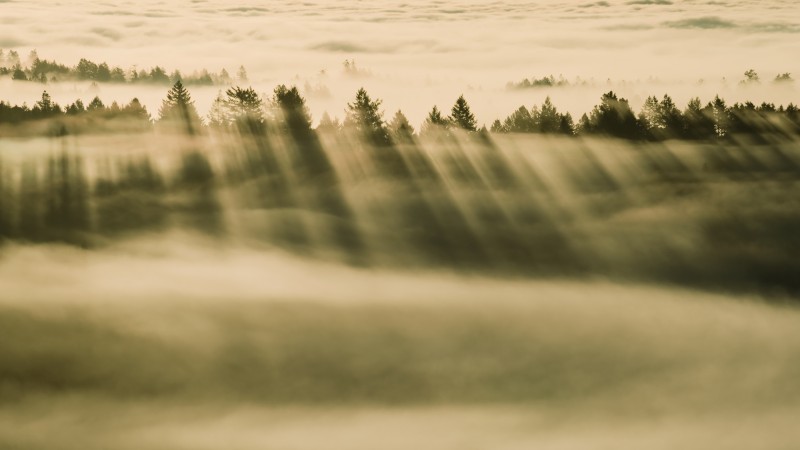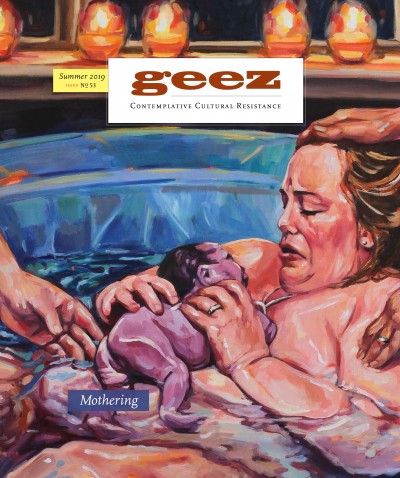The Stories We Read

Foggy forest Credit: Dante Aguiar (link below)
One year, when I was around 10 or 11, the entire curriculum my mother used to school us at home revolved around the Little House on the Prairie series.
I remember reading the books, studying them, cooking the foods they did. It was a pleasant year, immersed in the worlds of the pioneers. We were unschooled before it was the hip term; my days were spent reading or wandering the woods behind my house. It was idyllic, unstructured, safe, and calm. It was the kind of childhood people dream about giving their own children, and I had it.
I tried to read the Little House books to my daughter, starting when she was five. She found them boring. I have a set, a classic edition with a musty smell, that sits untouched in her room. I tried again last year, when she was in second grade, but this time I was troubled by the books. The narrative was relentlessly focussed on the pioneers. The disputes, the landscape, the outward expansion: all of it was told through the eyes of a child of the conquerors. Ma, who I remembered in the books as being a quiet, nice woman, is terrified of Indians and talks of their violence. My voice stuck in my throat reading this. I closed the book and we talked about why Ma was afraid, and how Laura Ingalls does not write about why Native Americans might have been afraid of people coming into their land, of the United States government giving away what was not theirs to give, of the mindset of people who thought the land was empty, simply because there were no white people there.
A few months ago, we started reading The Birchbark House together. Its author, Louise Erdrich, wanted to write a version of Little House that centred on the Indigenous experience of a young Ojibwe girl named Omakayas. Both my daughter and I were sucked into the story from the start. There is tragedy and humour and spirituality; there is boredom and hunger and a child trying to learn the confusing ways of growing up. There are the seasons that structure the book, the days of harvesting wild rice and maple sugar from the trees. There is the constant thread in the background of the encroaching changes, the Long Knives of chimookoman or white people, the diseases and church buildings and literacy and tools they bring with them; a swirling mix of the new and different and devastating. My daughter sighed dreamily at the end of the book that she never wanted it to end.
My daughter is growing up differently than I did. She attends a low-rated public school that is chaotic, noisy, with heavily structured eight-hour-days. She is not free to read and explore whatever she wants, her days are constrained by the needs of her neighbours. Some of her classmates are angry or sad or hungry or tired and it shows. Her school is made up of very resilient souls whose lives are constantly being encroached upon by systems that do not value them or their backgrounds or languages or religions or skin colours. She told me the other day that she saw a second Birchbark House book in her school library, and she can’t wait to check it out and bring it home to read with me.
She has the childhood I now dream about; one where she is aware of all the different ways there are to grow up in the world. She is having to learn how to love and be neighbours with children who are very different from her. Instead of being scared she is learning to be curious; instead of being shocked at the untold stories she simply seeks them out with a child’s radar for what is true. She knows and loves Omakayas, and understands the importance of centring her existence in the world of Laura Ingalls, because her life and story matter.
The Little House books remain untouched on her shelf, but if my daughter ever chooses to read them we will talk about who wrote them and what they left out. We will talk about how we come from people like Laura Ingalls, how our minds have been formed like theirs. And we will continue to read the books that stir our souls, that cause us to wonder at our incredible world and our incredible Creator. We will continue to pursue an education centred on seeking out powerful teachers like Omakayas. Together, my daughter and I will be on a lifelong journey of learning to be in awe of the ways people have and continue to survive, to pursue resurrection in the shadow of the dominant story.
D.L. Mayfield lives and writes in Portland, Oregon. Mayfield’s favourite memory of her grandmother is piling out of the car at her grandmother’s house and immediately being taken into the kitchen and cut a thick slice of chewy, light, homemade bread. Then they would slather it with butter and her signature strawberry freezer jam, each mouthful a feeling like they were home.
Image credit: “foggy-forest,” 2017, Dante Aguiar CC, flickr.com/danteaguiar.
Dear reader, we welcome your response to this article or anything else you read in Geez magazine. Write to the Editor, Geez Magazine, 1950 Trumbull Ave Detroit, MI 48216. Alternately, you can connect with us via social media through Twitter, Facebook, or Instagram.



Start the Discussion